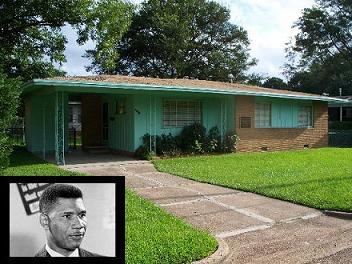
From The Mississippi Link Newswire

JACKSON – Whether you are a visitor or a resident of the state, Mississippi invites you to immerse yourself in the history of the True South during the month of February.
From antebellum homes and Civil War sites at Baldwyn, Brice’s Crossroads, Corinth, Columbus, Vicksburg, Natchez and Port Gibson to the Natchez Trace Parkway and its visitors center in Tupelo, you’ll find history preserved and celebrated across the entire state.
African American heritage is showcased at festivals, museums and attractions throughout Mississippi, including the home of Civil Rights leader Medgar Evers in Jackson and markers for the expanding Mississippi Freedom Trail around the state. The history of the Choctaw Indians in Mississippi dates back to the early 1500s. Today, the Choctaw Indian Reservation covers 35,000 acres of tribal lands in 10 Mississippi counties.
The Civil War
Some of the fiercest and bloodiest battles of the Civil War were fought on Mississippi’s soil. Walking through the state’s museums and among the Civil War sites and landmarks is the only way to truly capture the essence of that conflict. You can gain a firsthand look at a part of Mississippi’s past while also learning more about pivotal battles and the people who took part in them.
Architectural treasures still stand, providing a glimpse of how luxuriously some Mississippians lived in the pre-war era and the opulent lifestyles that came to an end. Among these historical structures are the intricate Longwood, the largest octagonal house in America; Rosalie, where you can witness the grandeur of Mississippi’s past through an informative tour by knowledgeable costumed guides; and Beauvoir, Confederate president Jefferson Davis’ former home. Other Mississippi museums, historical homes and Civil War sites and landmarks are located throughout the state. Mississippi State University’s Library and collection of Ulysses S. Grant, the Vicksburg National Military Park and Corinth Interpretive Center near Shiloh National Military Park are two other must-sees for history buffs.
The year 2013 continues the 150th Anniversary of the Civil War, and Mississippi is home to many of the Civil War Sesquicentennial activities and events being planned through 2015. The Civil War Trust lists 39 Mississippi sites on its Civil War Discovery Trail. The website, www.mscivilwar150.com, is an excellent resource for up-to-the-minute details about Civil War-related activities happening around the state.
The Civil Rights Movement

February is Black History Month in the United States, and travelers to Mississippi will be moved by the enduring spirit that conquered so many trials in Mississippi’s past. This rich culture of faith, music and food, along with unshakable determination, is tightly woven into and inseparable from the story of Mississippi.
One of the best places to capture this intense heritage is at Mississippi’s African American cultural center, the Smith Robertson Museum in Jackson. It’s an ideal place where you can embrace the heritage of a people who have forever changed the history of Mississippi and the rest of the nation.
With nine markers to date and more to come this year, the Mississippi Freedom Trail commemorates the bravery and courage of the men and women who fought for freedom and justice and is designed to educate the public about Mississippi’s Civil Rights heritage. The Freedom Trail markers in Jackson and other locations around the state represent an evolving complement to other heritage sites, like the Freedom Summer Trail in Hattiesburg, a driving tour of 16 historic sites of Freedom Summer 1964 and the Civil Rights Movement.
Native American Heritage
Another crucial ingredient to Mississippi history is the life of Native Americans. The word “Mississippi” is in fact a Native American word that means “Father of Waters.” Rich in plants yielding roots, nuts, berries, and herbs, as well as a plentiful population of deer, bear, buffalo, and fish, Mississippi was a comfortable home to a greater variety of tribes and had a higher Indian population that any other Southern state.

The Mississippi Band of Choctaw Indians maintains a proud presence in the state. The tribe’s casino in Neshoba County mix easily with its heritage. The famous Choctaw baskets, as well as other Choctaw crafts, can be found at the casino shop. Plan a visit in the summer where basket-weaving, the historic game of stick ball and native dance can be enjoyed at the Choctaw Indian Fair or visit historic burial mounds like the Winterville Mounds and Emerald Mound (the second largest ceremonial mound in the U.S.), and other cultural sites year round.
The state’s 13 Welcome Centers will also offer a glimpse into Mississippi’s cultural heritage through visual displays, costume exhibits and a myriad of resources like maps, tour guides, photographs and brochures to point visitors in the direction of discovery.
The diversity of the state’s history and heritage is rich and rewarding no matter where you travel in Mississippi. And February is the perfect month to experience it all. To begin planning your historical journey across the True South, go to the official Mississippi Tourism website at www.VisitMississippi.org or call 1-866-SEE MISS.




Be the first to comment